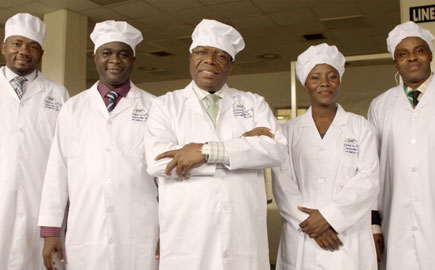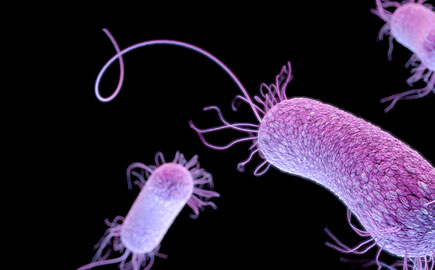Making a difference around the world
Across the globe, millions of people are at an increased risk of illness or death from taking poor-quality medicines used to prevent or treat devastating illnesses. USP was founded when eleven physicians took action to protect patients from poor-quality medicines. Convening in the U.S. Senate Chamber, they published a national, uniform set of guidelines for medicines called the U.S. Pharmacopeia. Since then, the U.S. Pharmacopeia and the National Formulary (USP–NF) has become an essential compendium on drug quality. Today, USP public standards that assure the quality and safety of medicines are legally recognized in the U.S. and relied upon in more than 140 countries.
With funding from partners like the United States Agency for International Development (USAID), USP strengthens medicines quality assurance systems, increases the supply of quality-assured medicines, and develops capacity to detect and remove poor-quality medicines from the market.
By sharing scientific expertise and providing technical support and leadership, we help local regulators improve and sustain local health systems and enable manufacturers to supply quality-assured essential medicines for years to come. Through these efforts, we're able to help prevent and treat diseases like HIV/AIDS, tuberculosis, malaria and neglected tropical diseases, and improve maternal, newborn and child health.
USP's work in low- and middle-income countries
For 27 years, USP has partnered with USAID and other global health donors and governments in low- and middle-income countries to build capacity and strengthen regulatory systems through the Promoting the Quality of Medicines Program. Together, we have helped enhance the capabilities of regulatory agencies in more than 34 countries and trained more than 4,000 government officials on the front lines of drug safety. USP was recently awarded the PQM+ program, which will continue and expand this important work.
"Poor-quality medical products endanger millions of people, fuel antimicrobial resistance, hold back progress on universal health coverage and waste billions of dollars in health resources," said Jude Nwokike, PQM+ program director at USP. "PQM+ will support countries to protect their citizens and their economies from the harms of poor-quality medical products and reap the benefits of increased access to quality-assured medical products."

USP also founded and supports the Medicines We Can Trust campaign because we are committed to ensuring quality throughout the medicines supply chain, and because our impact grows exponentially when we work with others in the health community. Medicines We Can Trust seeks to highlight the human impact of poor-quality medicines, create a sense of urgency around poor-quality medicines, inspire collective action, and unify a diverse and broad coalition of partners to advocate for the right to safe and quality medicines for everyone, everywhere.
"When private and public partners prioritize access to affordable, quality medicines, the impact is huge–with many lives saved and significant savings for healthcare budgets,” said Jayasree K. Iyer, executive director of the Access to Medicines Foundation.
USP's impact in the U.S.
Medicines in the U.S. are among the safest in the world, thanks in large part to the quality standards developed by the independent scientists at USP. Quality standards are at the core of a system that has built public trust and confidence in medicines. USP standards help build trust in generic medicines and reduce healthcare costs by helping millions of Americans achieve greater access to the medicines they need.
USP's Generics Access Plan increases patient access to medicines by facilitating generics competition through new and revised standards; training and education programs for generic manufacturers; and collaborations with the FDA, industry representatives and others.
As science and medicine advance rapidly, USP is embarking on an initiative to help ensure today's and tomorrow's remarkable innovations can be trusted in the same way we have helped to build trust in quality medicines over the past 200 years.




